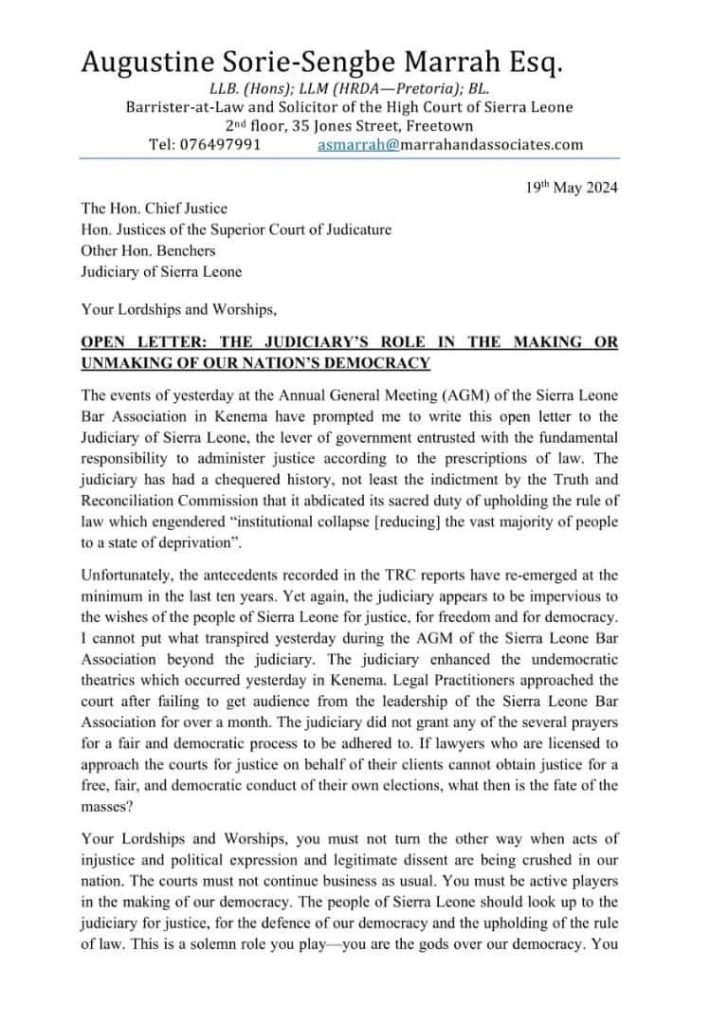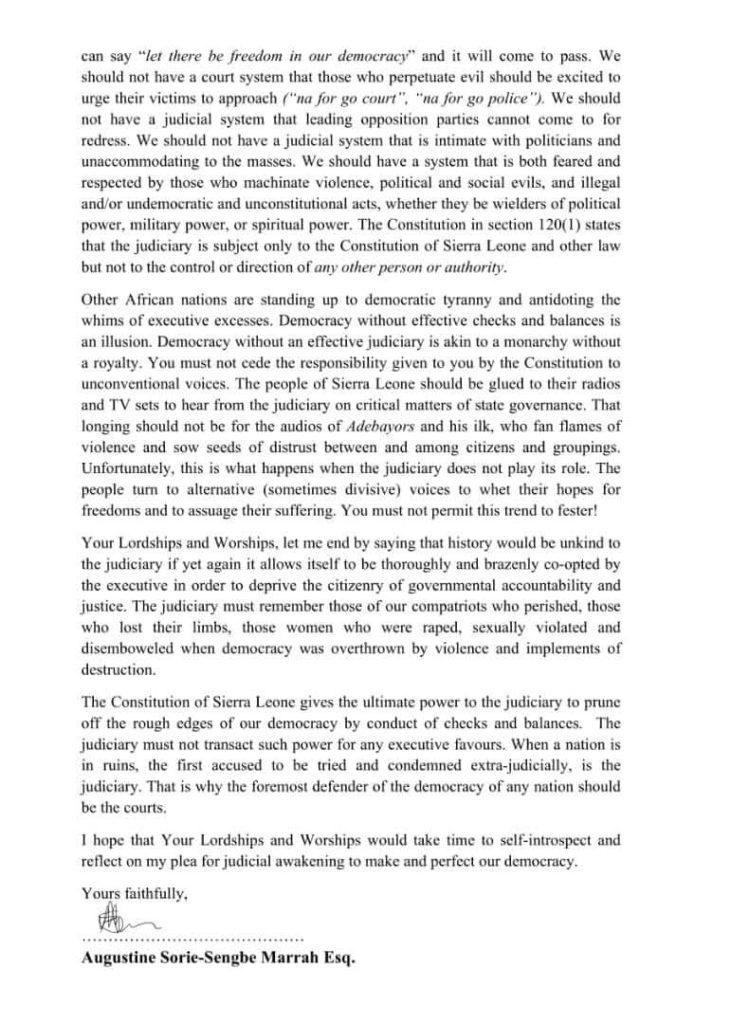
In the wake of recent controversies surrounding the Sierra Leone Bar Association’s Annual General Meeting (AGM) in Kenema, prominent lawyer and former presidential aspirant for the Bar Association, Augustine Sorie-Sengbe Marrah Esq., has penned an open letter to the Chief Justice, Justices of the Superior Court of Judicature, and other benchers of the judiciary. Marrah’s letter, a passionate appeal for judicial integrity, raises serious concerns about the state of democracy and the role of the judiciary in Sierra Leone.
Marrah begins his letter by referencing the troubled history of Sierra Leone’s judiciary, recalling the findings of the Truth and Reconciliation Commission (TRC), which condemned the judiciary for abdicating its duty to uphold the rule of law, contributing to “institutional collapse” and widespread deprivation. He suggests that these issues have resurfaced over the past decade, casting doubt on the judiciary’s commitment to justice, freedom, and democracy.
The AGM in Kenema, according to Marrah, was marred by undemocratic actions allegedly facilitated by the judiciary. He asserts that legal practitioners sought judicial intervention after being ignored by the Bar Association’s leadership for over a month. However, the judiciary failed to grant their requests for a fair and democratic process. Marrah questions the implications of this failure, asking, “If lawyers who are licensed to approach the courts for justice on behalf of their clients cannot obtain justice for a free, fair, and democratic conduct of their own elections, what then is the fate of the masses?”
Marrah calls on the judiciary to take an active role in safeguarding democracy and upholding the rule of law. He emphasizes that the judiciary should not turn a blind eye to injustice and the suppression of political expression and legitimate dissent. He urges the courts to be proactive in defending democracy, noting that the judiciary is a crucial pillar in ensuring checks and balances within the government.
Highlighting the judiciary’s constitutional mandate, Marrah reminds the judiciary that it is subject only to the Constitution and not to the control of any external authority. He contrasts the current state of Sierra Leone’s judiciary with those in other African nations, where judicial systems are standing up to democratic tyranny and curbing executive excesses. He warns that without an effective judiciary, democracy is an illusion, likening it to a monarchy without royalty.
Marrah’s letter also touches on the dangerous consequences of a judiciary that fails to fulfill its role. He argues that when the judiciary does not provide justice and accountability, the public turns to alternative, sometimes divisive, voices for hope and solace. He cites the rise of figures like Adebayor, whose inflammatory rhetoric gains traction in the absence of judicial intervention.
Concluding his letter, Marrah issues a stern warning to the judiciary. He cautions that history will judge the judiciary harshly if it allows itself to be co-opted by the executive branch, thereby depriving citizens of justice and governmental accountability. He invokes the memory of those who suffered and died during periods of democratic collapse, urging the judiciary to uphold its constitutional duty to maintain checks and balances and protect democracy.
Marrah’s open letter is a powerful plea for judicial introspection and action. It serves as a reminder of the judiciary’s vital role in shaping and preserving the democratic fabric of Sierra Leone. As the nation grapples with issues of justice and governance, the judiciary’s response to Marrah’s call for integrity and accountability will be closely watched by citizens and legal practitioners alike.





